The Naked Jungle (1954)
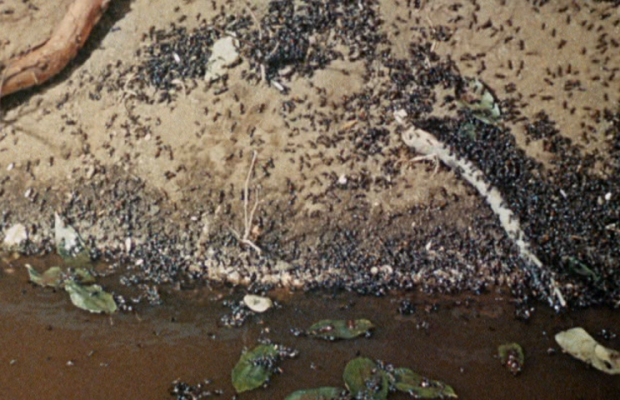
Toronto Film Society presented The Naked Jungle (1954) on Monday, March 12, 2018 in a double bill with Edge of Eternity as part of the Season 70 Monday Evening Film Buff Series, Programme 6.
Production Company: Paramount. Producer: George Pal. Director: Byron Haskin. Screenplay: Philip Yordan, Ben Maddow and Ranald MacDougall, based on the story by Carl Stephenson. Cinematography: Ernest Laszlo. Art Direction: Franz Bachelin and Hal Pereira. Set Decoration: Sam Comer and Grace Gregory. Costume Design: Edith Head. Music: Daniele Amfitheatrof. Release Date: March 3, 1954.
Cast: Eleanor Parker (Joanna Leiningen), Charlton Heston (Christopher Leiningen), Abraham Sofaer (Incacha), William Conrad (District Commissioner), Romo Vincent (Boat Captain), Douglas Fowley (Medicine Man), John Dierkes (Gruber), Leonard Strong (Kutina), Norma Calderón (Zala).
The music for both of tonight’s films was composed by Daniele Amfitheatrof, a Russian-born Italian-naturalized composer and conductor. Born in Saint Petersburg, his father was a noted writer while his mother was an accomplished singer and pianist. His brother Maksim was an internationally renowned cellist.
Born on October 29th, 1901, his early life began in extreme hardship when, at the age of three months, his family was sent to Siberia where they lived for two years when his father was imprisoned for publishing anti-Tsarist articles. In 1904, after his father’s release and returning to St. Petersburg, the family emigrated to Italy.
At the age of six, Daniele began studying music and when the family returned to Russia in 1917, he continued his studies there. In 1921, he was given permission to travel to Prague to further study the techniques of counterpoint, writing melodies in conjunction with another melody.
Once graduating, Daniele took his place in the Italian music society, eventually traveling throughout Europe where he conducted many of the leading orchestras. He also became a successful composer, composing his first film score for Max Ophüls’ only Italian film, La Signora di Tutti (1934).
Daniele arrived in America with his wife and two children when he was invited by the Minneapolis Symphony Orchestra for the position of associate to conductor Dimitri Mitropoulos, where his work was well-received. With WWII imminent in Europe, Daniele chose to remain in the US, relocating his family to California on the recommendation of Boris Morros, then the director of music at Paramount Pictures. Upon his arrival, Daniele was hired by MGM under a four-year contract, from 1939-1943. Besides tonight’s two films, he wrote scores for many others including Elizabeth Taylor’s first major film, Lassie Come Home, another famous Ophüls film, Letter from an Unknown Woman and was nominated twice for an Oscar for his work on Guest Wife (1945) and Song of the South (1946).
Daniele once remarked in written correspondence to his friend and colleague, John Steven Lasher, that his career in Hollywood “as a prostitute composer” ultimately tarnished his image as a professional musician resulting with him being unable to secure commissions or performances of his concert works.
Returning to Italy in 1959, he lived there until 1967, making frequent visits to the US during the final 15 years of his life. His final years were spent in relative seclusion in Venice and in Rome, where he died on June 4, 1983.
Source: Wikipidea
Introduction by Caren Feldman
The Naked Jungle is based on the short story “Leiningen Versus the Ants” by Carl Stephenson, published in the December, 1938 edition of Esquire magazine. The story is about an attack by army ants on a cocoa plantation in South America. William Conrad, who had starred as Leiningen in a 1948 adaptation of Stephenson’s story for the radio program “Escape”, appears in the film as the District Commissioner. Conrad may best be remembered for his television roles in “Cannon” (1971-76); “Nero Wolfe” (1981); and “Jake and the Fat Man” (1987-92), and as the narrator of “The Fugitive”. To a generation who grew up watching Saturday morning cartoons, he will be remembered as the narrator of “The Adventures of Rocky and Bullwinkle”. He also created the role of Matt Dillon for the popular radio series “Gunsmoke” (1952-1961).
William Conrad was born on September 27, 1920 in Louisville, Kentucky. His parents, John William Cann and Ida Mae Upchurch Cann, owned a movie theatre, and Conrad grew up watching movies. The family moved to Southern California when Conrad was in high school. He majored in drama and literature at Fulleron College in Orange County, California and began his career as an announcer, writer, and director for Los Angeles radio station KMPC. He served in the U.S. Army Air Corps as a fighter pilot during World War II. At the end of the war, he left the military with the rank of Captain and as a producer-director in the Armed Forces Radio Service. He had a very successful career in radio from the end of the war until 1956. His voice was so recognizable that it almost cost him the role of Marshall Matt Dillon in the radio version of “Gunsmoke”, but he gave an impressive audition that won him the role for the series’ entire run (1952-1961). He lost the TV role to James Arness, who was suggested by John Wayne after having declined the role; Arness had co-starred with Wayne in the film Big Jim Maclain (1952).
In films, Conrad’s size and deep voice often had him cast as villains or authority figures. His first credited film role was in The Killers (1946), in which he and Charles McGraw were the thugs sent to kill Burt Lancaster. He appeared as John Garfield’s manager in Body and Soul (1947); as an arsonist in Sorry, Wrong Number (1948); and as a prosecutor in Joan of Arc (1948). His directing and producing career was impressive. He produced and directed the latter-day film-noir Brainstorm (1965), starring Jeffrey Hunter and Anne Francis. Despite poor reviews upon its release, it has come to be regarded in a better light. Film Noir: An Encyclopedic Reference to the American Style (1979) called it “a minor masterpiece of the 1960s” and it is included in other lists of top films-noir. He was the executive producer of Robert Altman’s first feature film, Countdown (1968).
Conrad, along with contemporaries Sam Peckinpah and Robert Altman, got his start as a director by directing TV shows. He directed episodes of “Klondike”; “The Rifleman”; “Bat Masterson”; “Route 66”; “Have Gun, Will Travel”; and “Ripcord”, among others. He also guest-starred on many of the same shows. In 1963, he directed Jeffrey Hunter in the Warner Bros. western TV series “Temple Houston”. His voice can be heard narrating other TV shows and documentaries, including “The Fugitive” (1963-67); “The Highwayman” (1987-88); and “The Making of Star Wars” (1977). His narration work on Design For Disaster (1962), a documentary about California wild fires in November of 1961, earned him the gratitude of Jack L. Warner, who gifted him with one of the original prop falcons from The Maltese Falcon (1941).
William Conrad was married three times and had one son, Christopher, with his first wife, Susan Randall. He died in Los Angeles on February 11, 1994, from congestive heart failure, at the age of 73. He has a star on the Hollywood Walk of Fame and was posthumously elected to the National Radio Hall of Fame in 1994.
Notes by Bruce Whittaker

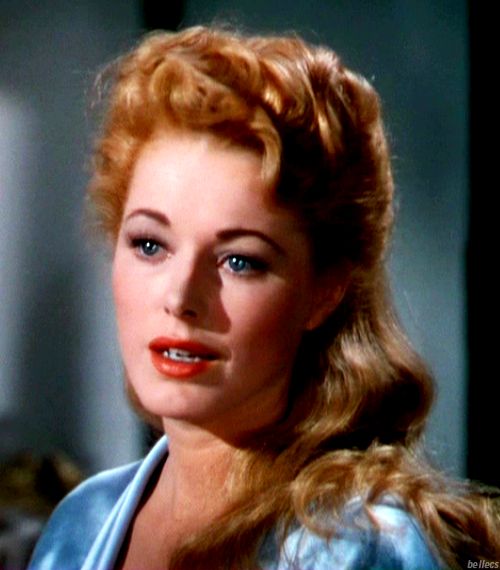
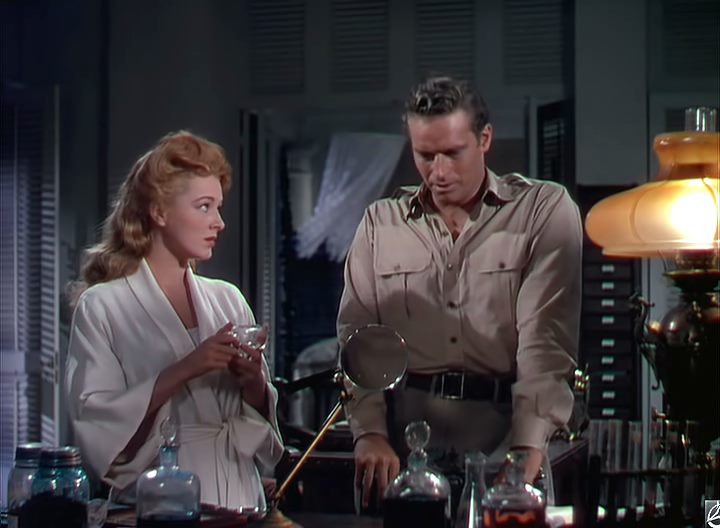
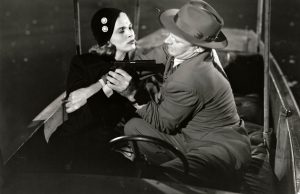
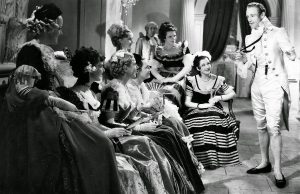
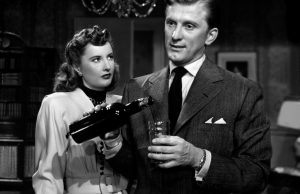






Leave a Reply